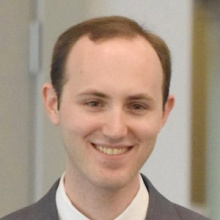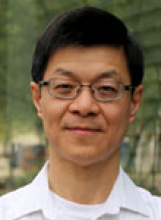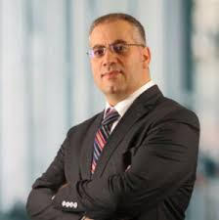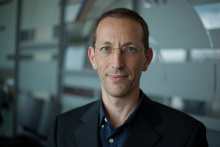CPS Events
Electrification of aircraft design
Abstract
Aircraft design is a discipline as well as a process that utilizes various aspects of science and technology in order to create flying machines. A good aircraft design will be a tradeoff between competing requirements, such as speed, range, and comfort, while satisfying a number of safety constraints.
In the past, aircraft design has taken leaps forward with introduction of technologies such as jet engines and composite materials. An electrification revolution is currently underway in aviation. This is primarily driven by the availability of high energy density batteries, and the change is not unlike the one in the automotive field. The larger coming leap, however, is the increasing automation of operation of air vehicles that will eventually lead to their full autonomy.
In this talk, I will give a brief overview of the evolution of technologies and considerations that have shaped aircraft design. Special consideration will be given to electric aircraft propulsion and the ways in which it has been utilized in some of the early electric aircraft. I will give a brief overview of the current Joby electric vertical take off and landing vehicle and the high level design considerations that affected its creation. I will then focus on how various interconnected electric and electronic systems are becoming a key consideration already in the early conceptual design of aircraft, taking on the same importance as the more traditional aerospace disciplines. I will explain how modeling and simulation can be leveraged in order to test and verify complex designs before any parts are built. I will make a case for how automated system control is central in order to meet the safety demands placed on future electric air vehicles.
Bio
Gregor Veble Mikić obtained his Ph.D. in physics from the University of Ljubljana, Slovenia, in 2001, in the field of quantum chaos. After a post-doctoral stint at the Universita degli Studi d`Insubria, Como, Italy, between 2001 and 2003, he became an assistant at the University of Ljubljana from 2003 to 2007. In 2007 he became assistant professor of physics at the University of Nova Gorica, Slovenia, later associate professor in 2013. In parallel, he took on the role of head of research at Pipistrel d.o.o. Ajdovscina, Slovenia from 2007 to 2015. During this period, he led the design of the Panthera general aviation aircraft, and was responsible for the aerodynamics and performance of the Taurus G4, the aircraft that won the NASA Green Flight Challenge sponsored by Google competition in 2011 as a first 4 seat fully electric aircraft. In 2015 he joined Joby Aviation as chief aerodynamicist and head of flight physics group, where amongst other things he was responsible for aerodynamic design of Joby's electric vertical take-off and landing aircraft. He received the AIAA 2016 Piper General Aviation Award, which is awarded for outstanding contributions leading to the advancement of general aviation.
Design and Analysis of AI-Based Cyber-Physical Systems using Formal Scenarios
Localization and Mitigation of Cascading Failures in Power Systems
Line failure in power grid propgates in non-local, intricate and counterintuitive ways because of the interplay between power flow physics and network topology, making the mitigation of cascading failure difficult. The conventional approach to grid reliability is through building redundant lines. In this talk, we present an opposite approach to grid reliability through failure localization, by judiciously removing lines and adopting a new class of frequency control algorithms at real-time. The topology design partitions the network into regions that are connected in a tree structure. The frequency control automatically adjusts controllable generators and loads to minimize disruption and localize failure propagation. This approach is derived from a spectral representation of power flow equations that relates failure propagation to the graph structure of the grid through its Laplacian matrix. We summarize the underlying theory and present simulation results that demonstrate that our approach not only localizes failure propagation, as promised by the theory, but also improves overall grid reliability even though it reduces line redundancy.
(Joint work with Daniel Guo, Chen Liang, Alessandro Zocca, and Adam Wierman)
Bio
Advancing the state of grid digitalization with intelligent sensors and analytics
Abstract
The electric utility industry is undergoing an unprecedented business and technology transformation to address the rising challenges of decarbonization, decentralization, and digitalization. In this presentation, we will discuss the main elements of digital transformation and illustrate the rising role of intelligent sensors and advanced analytics with a special focus on grid reliability applications. Example use cases from field deployments will be used to demonstrate the realm of new possibilities with precision time stamping and analytics at-scale.
Bio
Dr. Mir Mousavi is currently Head of Advanced Analytics and Applications at Sentient Energy, a Koch Engineered Solutions Company. He joined Sentient Energy from ABB where he was most recently Global Technical Director in the Power Grids Division. He has served as program manager & industry liaison in various industrial forums and research consortiums. He has spent over two decades in various roles leading technology & strategy development and deployment in the areas of power system automation, intelligent monitoring, control, and protection.
He received his Ph.D. degree in electrical and computer engineering from Texas A&M University. He is a prolific industry speaker, author, mentor, and panelist. He holds over fifteen US and international patents and has published several journal articles and book chapters. Mir is a senior member of IEEE and IEEE Power and Energy Society (PES).
Recovering from Robot Failures by very fast Learning
Abstract
As we begin to deploy more and more robots in the field, we encounter a growing need for both autonomous recovery from failure, and for graceful degradation under damage. Both of these are properties of biological systems. Recently we have shown two different approaches that employ tools and insights from the mathematical modeling of animal locomotion to allow our robots to quickly recover from typical failures.
In one approach, our investigation revealed that the physics of multilegged running are a lot closer to swimming in low Reynolds number (Stokesian) fluids than they are to human running. By exploiting this fact, our robots could be made to learn how to move with only a few minutes of physical trials. When a failure occurs, the robots re-learn how to move even faster.
In another approach, the reformulation of robot dynamics in terms of simultaneous constraints allowed us to exploit the observation that many common failures are low-rank in terms of the constraints. By augmenting the constraints that survived the failure with a naive learning algorithm, our robots quickly re-learned how to perform the desired behavior.
Both approaches suggest that we are moving closer to animal-like abilities of recovery from damage.
Bio
Shai Revzen is an Assistant Professor of Electrical Engineering and Computer Science in the College of Engineering, and holds a courtesy faculty appointment in the Department of Ecology and Evolutionary Biology in the College of Literature, Science and the Arts. He received his PhD in Integrative Biology doing research in the PolyPEDAL Lab at the University of California at Berkeley, and did his postdoctoral work in the GRASP Laboratory of the University of Pennsylvania. Prior to his academic work, Shai was Chief Architect R&D of the convergent systems division of Harmonic Lightwaves (HLIT), and a co-founder of Bio-Systems Analysis, a biomedical technology start-up.
As principal investigator of the Biologically Inspired Robotics and Dynamical Systems (BIRDS) lab, Shai sets the research agenda and innovative tone of the lab. He believes in the intrinsic value of fundamental science, and of its transformative potential for robotics and future technology. Under his supervision, the lab combines work in three disciplines: robotics, mathematics, and biology.





